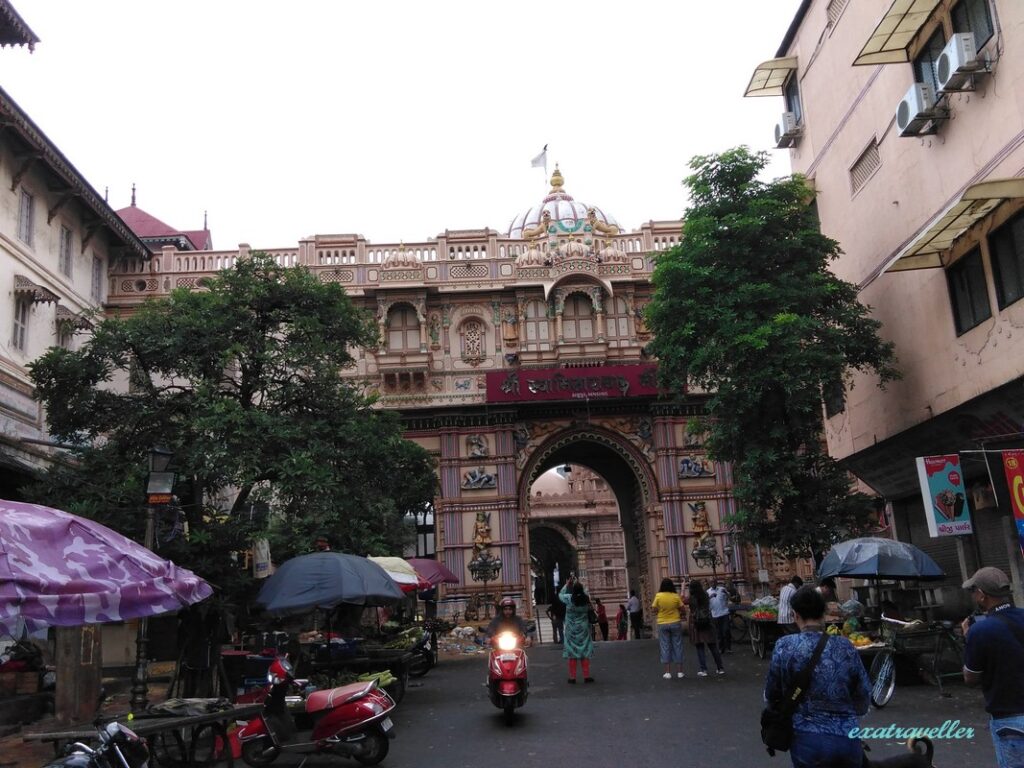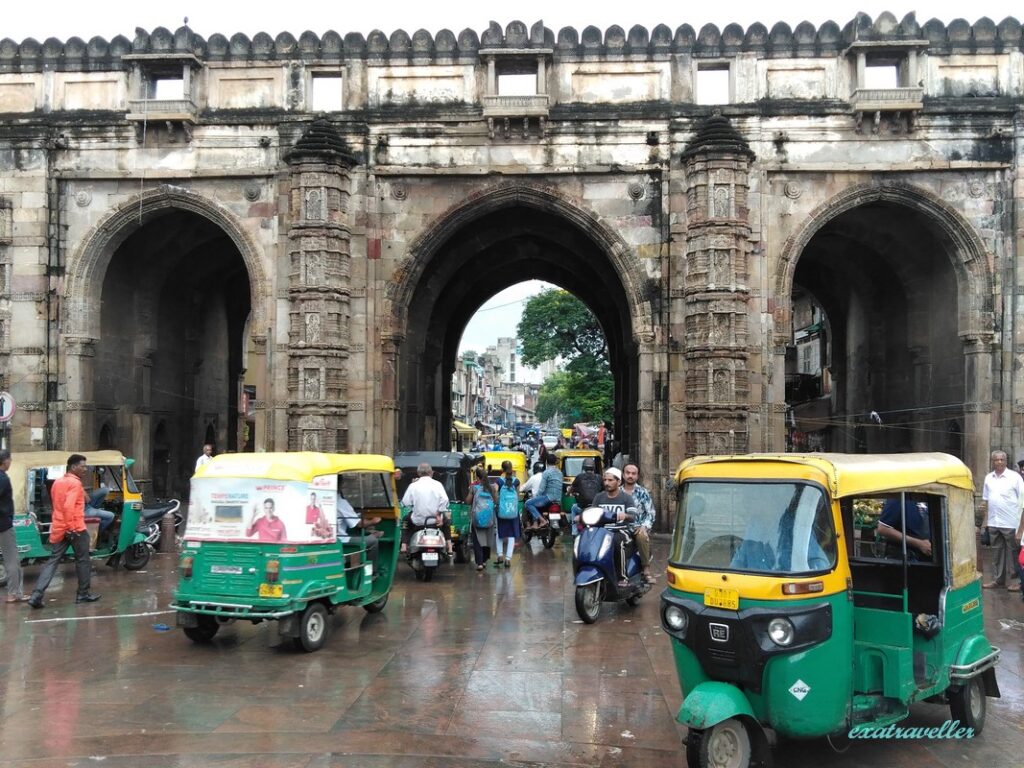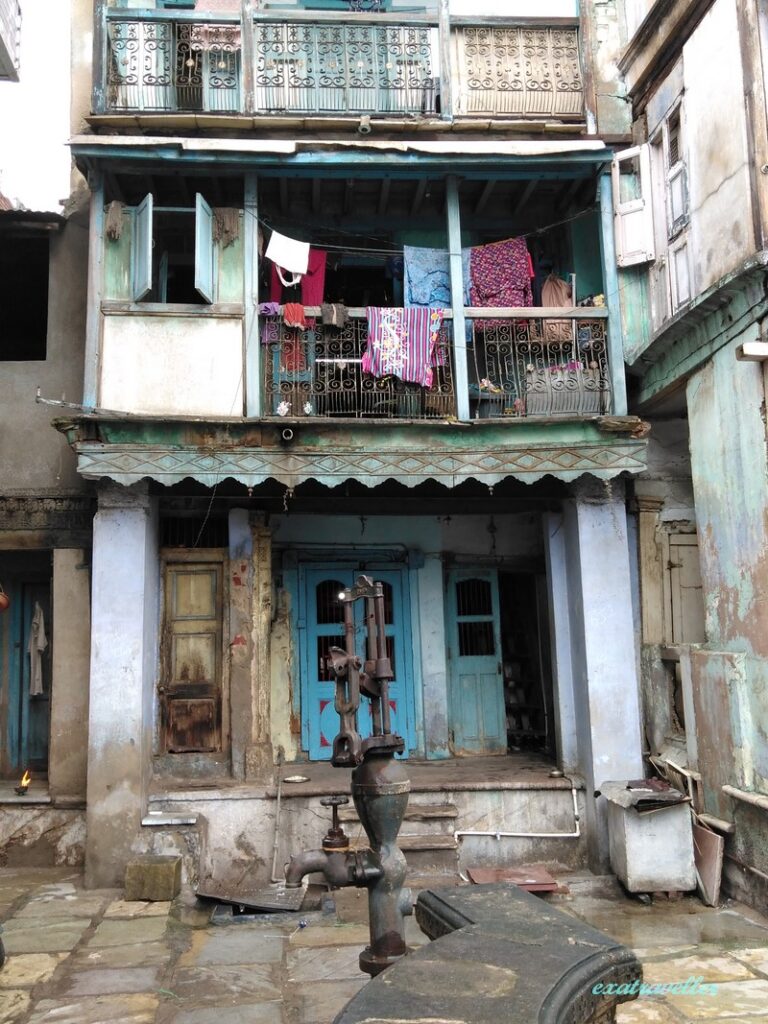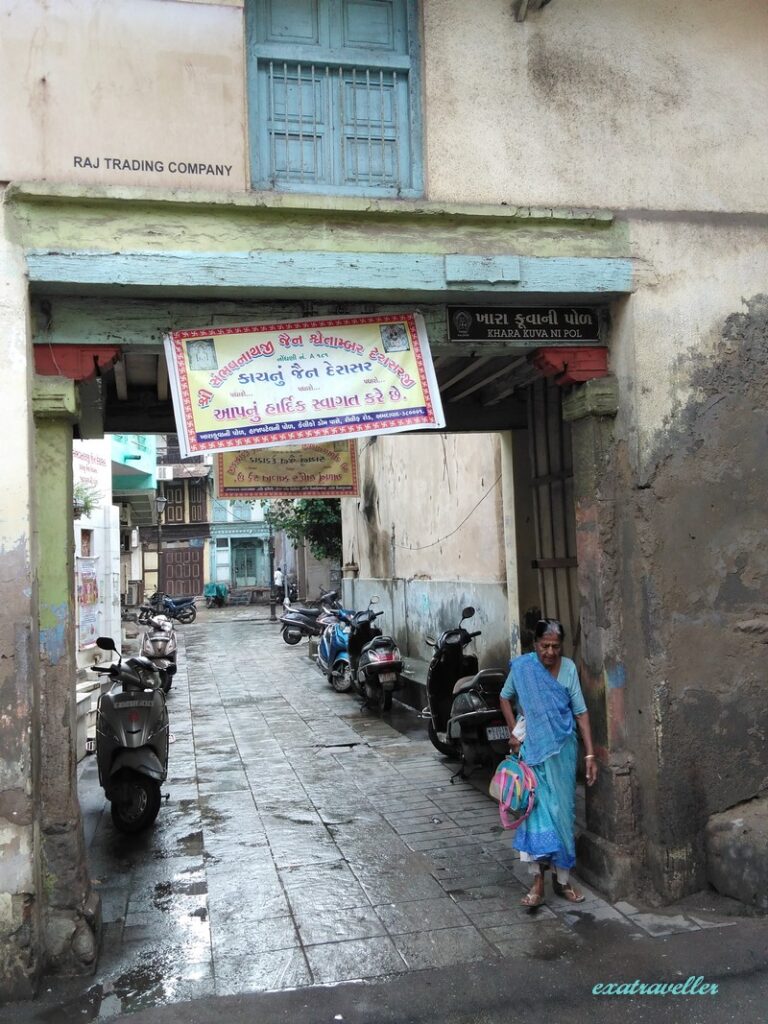India, Ahmedabad, Gujarat. Ahmedabad holds the legacies of an old city that still looked wrapped up in time and is the only city in India to be declared Heritage by UNESCO.
Ahmedabad fondly pronounced as Amdavad by locals is a modern-day commercial hub of Gujarat. It’s an almost 600-year-old architectural heritage founded by Sultan Ahmed Shah that justifies the coveted World Heritage Site tag. The heritage walk is part of a conservation initiative to gain awareness and save the invaluable heritage of the old city.
The old city or rather the Walled city offers a great insight into the amazing history of the city, and the fabulous centuries-old architecture that existed in the heart of this Indian city. The life in the old city’s famous Pols which has tree-shaped chabutaras for feeding birds, rainwater harvesting, etc. is quite amusing.
Heritage Spots
There are 22 heritage spots that fall under this heritage walk, covering a distance of two kilometers and going through interesting stops. The aforementioned spots are as follows:
01. Swaminarayan Temple, Kalupur
02. Kavi Dalpatram Chowk
03. Lambeshwar Ni Pol
04. Calico Dome
05. Kala Ramji Mandir
06. Shantinathji Mandir, Haja Patel Ni Pol
07. Kuvavala Khancha, Doshivada Ni Pol
08. Secret Passage, Shantinath Ni Pol
09. Zaveri Vada
10. Sambhavnath Ni Khadki
11. Chaumukhji Ni Pol
12. Astapadji Derasar
13. Harkunvar Shethani Ni Haveli
14. Dodiya Haveli
15. Fernandez Bridge (Gandhi Road)
16. Chandla Ol
17. Muharat Pol
18. Ahmedabad Stock Exchange
19. Manek Chowk
20. Rani-no-Haziro
21. Badshah-no-Haziro
22. Jami Masjid
The Walk
The starting point of the heritage walk is the famous 19th-century Kalupur Swami Narayan Temple and it ends at the 15th century Jama Masjid at Manek Chowk. This heritage walk is christened as a journey from ‘Mandir to Masjid’ and lets you travel through immortal times to experience an interesting world of yesterday – still breathing in a modern world.

Ahmedabad was built in AD 1411 on an ancient site of Ashaval and Karnavati. Various cultures have evolved and survived here with time and today we can see fine Indian Islamic monuments and exquisite Hindu and Jain temples established here.
Read also Community Living – Heritage Locked In The Pols
For the visitors, the walled city comprises a maze where numerous pols, i.e the self-contained neighborhoods provide shelter to a large number of people. These are like small villages, characterized by narrow lanes, originating at a square, and are self-sufficient with community wells, gates, blind alleys, and secret passages, all built artistically. The Pols full of carved wooden houses are unique examples of community living representing independent living yet intertwined with others.
There is so much to see in every corner of these hidden gems, be it the front doors, the house columns, or the furniture from another era in the front porches. Each shop, each sprawling house in the pol looks like a living museum. Angans and Otlas, shared walls, and common courtyards help in building harmony and respect among the residents.
Finishing Point
The walk culminates at Jami Masjid, one of the biggest mosques in India and a building that was built 200 years before the construction of the Taj Mahal. The masjid was built during the reign of Ahmed Shah and is an example of Gujarat’s Sultanate architecture.

The walled city had 12 gates and a huge entrance. Today we can only see the Teen Darwaza, named because of its 3-arched entrance. It is one of the remaining gates that once adorned the walled city. The Teen Darwaja was named because of its 3-arched entrance.
Manek Chowk
Visitors should definitely go to the famous Manek Chowk. Here you can experience three different kinds of businesses running at a single spot. These businesses run as per a schedule during the day — a vegetable market in the morning, a jewelry market in the afternoon, and a food street in the evenings. This is the place to come to at nights to savor some of the best street foods of Gujarat.
Details of Heritage Walk
Ahmedabad Municipal Corporation (AMC) in association with the Foundation for Conservation and Research of Urban Traditional Architecture (CRUTA) take tourists on the heritage walk across the old city for 2-3 hours every morning from 8:00 to 10:30 AM at a nominal fee of INR 50 for Indians and INR 100/- for SAARC nationals.



